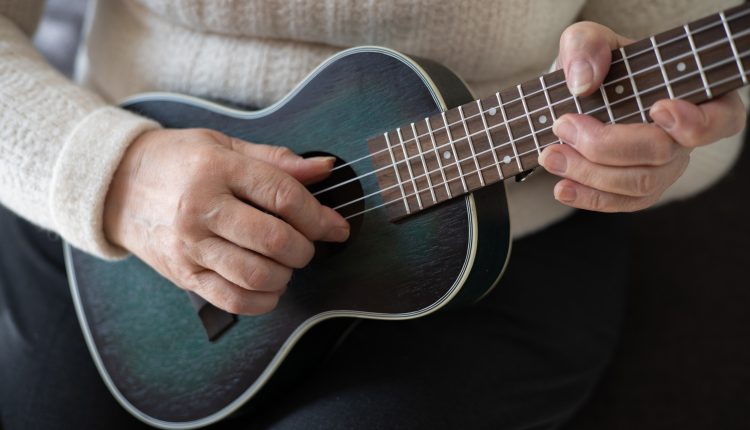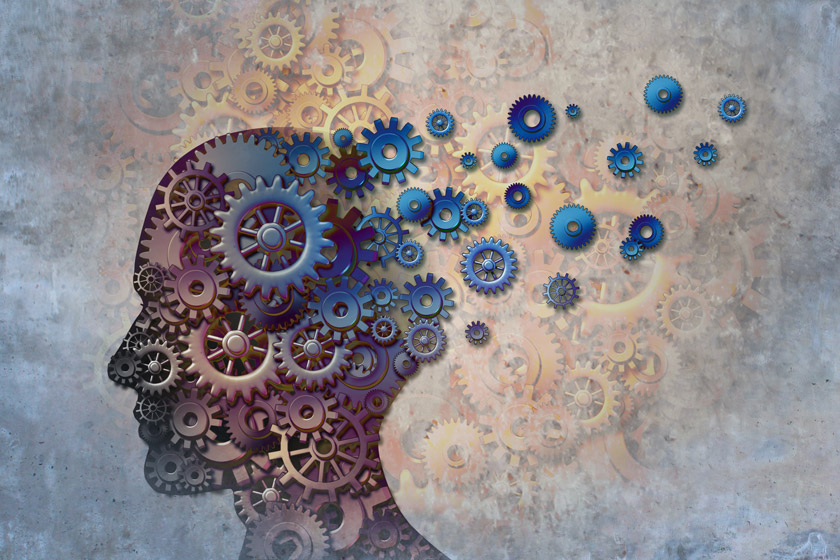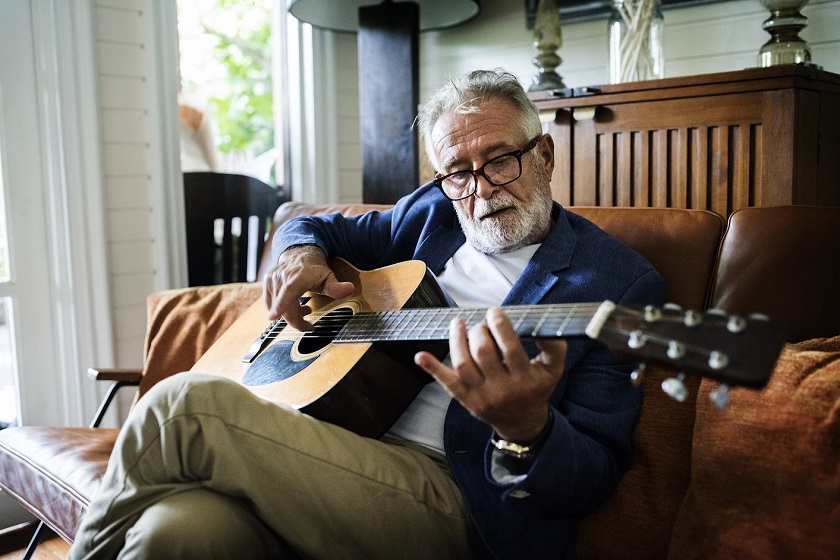
How Does Playing an Instrument Prevent Alzheimer’s?
According to studies, we are primarily responsible for our risk of developing dementia. Most studies on boosting brain functions focus on maintaining mental and social engagement, eating a balanced diet, and exercising. All of these are still critical. Nonetheless, a recent study published in the Journal of the American Geriatrics Society throws light on another practice: Playing an instrument to prevent Alzheimer’s.
According to a meta-analysis of 21 previous studies, playing music rather than merely listening can improve quality of life and mood while delaying and reducing Alzheimer’s risks. According to the study, MCI is “a preclinical condition intermediate between normal cognitive aging and Alzheimer’s disease.”

Contents
- 1 Playing An Instrument To Keep The Ageing Brain Sharp
- 2 Does Playing an Instrument Prevent Alzheimer’s Disease?
- 3 Playing a Musical Instrument Improves Self-Awareness
- 4 Combating Cognitive Decline and Dementia (AD)
- 5 Playing An Instrument Improves Grey Matter
- 6 Musical Expression Helps To Reduce Stress, Anxiety, and Depression
- 7 How to Get Started
- 8 Best musical instrument for seniors to start learning
- 9 Final Words
Playing An Instrument To Keep The Ageing Brain Sharp
While research into medications to reduce or repair the damage caused by Alzheimer’s disease continues, there is evidence for a lower-tech intervention: Music.
Many studies have shown that playing music can help those with advanced Alzheimer’s by stimulating the brain regions that have not been affected by the disease, reducing emotional distress, and encouraging cognitive improvement.
An updated analysis published in the Journal of the American Geriatric Society earlier this year took a different angle: Could people whose cognitive abilities are starting to degrade benefit from engaging in musical activities like playing an instrument or singing?
The research focused on individuals with mild cognitive impairment, which can be the initial step toward Alzheimer’s or other forms of dementia.
They discovered from 21 studies involving over 1,400 participants worldwide that playing instruments, singing, or participating in music-making can have a modest but consistent benefit in memory and other measures of brain health.
Does Playing an Instrument Prevent Alzheimer’s Disease?
Currently, the answer is no. But for those with Alzheimer’s disease and other forms of dementia, research suggests that singing or playing an instrument can positively affect their emotions and behaviour. The condition does not damage key brain regions associated with musical memory, which means that patients with Alzheimer’s often retain their ability to remember musical information.
Playing a Musical Instrument Improves Self-Awareness
Any creative task, including playing an instrument, is a form of self-expression. A fantastic way to channel your pent-up creativity and enthusiasm into something constructive is to play a musical instrument.
Also, there’s no requirement for pro skills. You must figure out how to express yourself through hand movements, emotions, and thoughts, and every dormant emotion will now start to surface. All of this occurs as the music acts as a vehicle for releasing untapped emotions and feelings. It creates a one-of-a-kind outlet for self-expression that no other method or way can match. An individual’s imagination flourishes whenever they can share their thoughts and feelings with their peers.
As a result, self-awareness grows. That’s why learning an instrument is one of the best investments you can make in your personal development.
Combating Cognitive Decline and Dementia (AD)
Currently, there’s no known cure or treatment to prevent or reduce Alzheimer’s risks (a highly chronic disease), and there is also no known way to slow the progression of neurodegeneration. So far, the only treatment available is to slow the disease’s progression.
More and more people have turned to psychosocial interventions since the 1960s to combat or reduce Alzheimer’s risk. However, its frequency has increased with the beginning of the new millennium. One of the most popular kinds of these interventions is music therapy.
Many therapists advocate for beginning music therapy with AD patients as soon as possible, as it has been shown to affect the disease positively. One non-pharmaceutical approach that may help people with AD is music lessons. Also, encouraging them to copy more accurately and communicate better can yield better results.
Remember that music is excellent for the brain and helps older people with mild dementia adjust better to new environments. Playing an instrument can improve their general quality of life during a challenging time.

Playing An Instrument Improves Grey Matter
Many studies have compared the brain scans of people who play instruments to those who do not. And it appears that the brain structures of these two groups of people differ significantly. The first category includes musicians who regularly play at least one musical instrument.
The corpus callosum, a group of fibres connecting the two halves of the brain, exhibits the most differences.
Aside from that, professional keyboard players appear to have more significant brain regions that control hearing, movement, and visuospatial abilities.
Conclusively, playing an instrument increases the amount of gray matter in the brain.
Musical Expression Helps To Reduce Stress, Anxiety, and Depression
According to a Forbes magazine article, numerous creative techniques of self-expression improve health and well-being. Anxiety, stress, and depression all decrease when a person engages in creative activities. The reason is the “feel-good” hormone, Dopamine, releases whenever a person engages in a repetitive creative motion, such as strumming a guitar or playing the piano.
The consistent release of this pleasure hormone should provide a more upbeat sense of health, well-being, and happiness. It also explains how it may benefit your mental health and is an excellent alternative to the rush that alcohol or drugs provide.
Not only that but playing musical instruments also lowers and regulates blood pressure. Again, this is the result of improved emotional and mental calmness.
How to Get Started
Here are some tips on how to begin learning a new instrument as an older adult:
- Choose an instrument that you adore. It makes learning much more enjoyable and more manageable.
- Don’t expect to become a musical genius right away. Just like everything else, practice makes perfect. So if you take your time and do it every day for about 30 minutes, you’ll see improvements and advance your abilities!
- Pick an instrument with the correct size. Buying an instrument you can play without causing pain or strain to your muscles, limbs, or joints is critical.
- Ensure the instrument’s weight and material are a good fit for you. For example, a heavy metal fitting instrument may be easier to break than one made of lighter materials.

Best musical instrument for seniors to start learning
Although it is entirely optional, here are the best nine instruments you can try learning:
- Ukulele
- Guitar
- Bongo Drums
- Mandolin
- Piano
- Flute
- Violin
- Cello
- Harmonica
Final Words
As of today, there is still no cure for age-related cognitive decline, dementia or Alzheimer’s. But, many studies suggest that playing an instrument, whichever it is, can potentially slow, delay or prevent the onset of mental decline (Alzheimer’s). Besides having mental and cognitive benefits, playing an instrument can lower blood pressure, relieve stress and anxiety, and improve your mood in those more challenging times. It’s both healthy and fun, so why not start learning one?
Reading this article brought back fond memories of my grandmother, who played the piano until she was well into her 90s. She always said that playing an instrument helped keep her mind sharp and prevent memory loss. It’s fantastic to see that scientific studies back up what she believed. As someone who enjoys playing the guitar, it is reassuring to know that I’m not only having fun but potentially protecting my brain health in the long run. I hope this article inspires more people to take up an instrument or keep playing the one they already know for the joy of it and the potential cognitive benefits.
I found this article to be incredibly informative and inspiring. The idea that is playing an instrument can help prevent Alzheimer’s is fascinating and underscores the importance of staying mentally active as we age. I remember watching my grandmother play the violin well into her 90s and being amazed at her sharp mind and memory. She often attributed her cognitive abilities to the mental stimulation of playing music. Your article provides scientific evidence to support this claim. It offers practical tips for seniors interested in picking up an instrument or continuing to play one they already know. Thank you for sharing this valuable information and spreading awareness about the benefits of musical activity!
Thank you for sharing this article and highlighting the connection between playing an instrument and preventing Alzheimer’s. As a senior citizen who has been playing the piano for over 60 years, I can attest to the many benefits of musical activity. It brings joy and fulfillment to my life, and I’ve also noticed improvements in my memory and cognitive function. The mental stimulation and challenge of playing an instrument have helped keep my mind sharp as I’ve aged. Your article provides valuable information for seniors looking to stay mentally active and prevent cognitive decline. Thanks again for sharing!